The following funding opportunities have been announced. Please follow the links for more information.
British Academy invites applications for the Newton Advanced Fellowships. These enable international researchers to establish and develop collaborations with the UK with the intention of transferring knowledge and research capabilities to advance economic development and social welfare of the partner country. Researchers may be working in any discipline within the social sciences and humanities. Applicants must have a PhD or equivalent research experience and hold a permanent or fixed-term contract in an eligible university or research institute which must span the duration of the project. The overseas partner must be based in Malaysia, Mexico or Thailand. Applicants should have not more than 15 years of postdoctoral research experience. Each fellowship lasts for one to two years and provides £37,000 per year to cover research support, travel and subsistence and training costs.
Maximum award: £74000. Closing date: 5pm, 16/09/15.
British Academy invites applications for the Newton Mobility Grants. These enable UK universities and research institutes to host international researchers in order to establish and develop collaborations around a specific jointly defined project in any discipline within humanities and social sciences, and with the intention of transferring knowledge and research capabilities to advance economic development and social welfare of the partner country. Both a UK-based and overseas-based applicant are required for this scheme. Applicants must have a PhD or equivalent research experience and hold a permanent or fixed-term contract in an eligible university or research institute, which must span the duration of the project. The overseas-based applicant must be at a research institution based in Malaysia, Mexico, South Africa, and Thailand. Grants are worth up to £10,000 each for one year for Malaysia, Mexico and South Africa applicants, and up to £20,000 for Thailand applicants. The grants aim to cover travel and maintenance costs, although costs related to other eligible activities will be considered.
Maximum award: £20000. Closing date: 5pm, 16/09/15.
Engineering and Physical Sciences Research Council, as a part of the Research Councils UK energy programme, invites intents to apply for its call on Research Challenges in Industrial Carbon Capture and Storage. Funding supports collaborative research projects that tackle challenges in industrial CSS and respond to the challenges of CO2 capture technologies for industry or whole systems understanding of CCS. Topics addressed may include: the range of current and future compositions, sources, conditions, scales and applications; scalability at a reasonable cost; the technology landscape; performance measurement and modelling; advanced materials; adsorption–desorption process; integrating industrial and capture processes; integrating modelling across scales for systems analysis; the level of industrial CSS needed in order to meet emissions targets; integrating industrial capture with power sector CO2 transport and storage; stranded CO2 sources. Must register your interest by 18/08/15.
Maximum award: not specified. Closing date: 4pm, 22/09/15.
Innovate UK and the Ministry of Defence, under its Defence Equipment and Support, invites registrations for their non-destructive evaluation competition. This seeks innovative technologies, concepts and solutions that optimise non-destructive evaluation within the deployed and fixed environment. Non-destructive evaluation refers to methods that permit the examination of materials, structures and components without causing damage that renders the subject unfit for use. Innovative solutions should provide a mixture of the following benefits: accurately measure or monitor equipment and components to optimise maintenance plans; reduce inventory costs by applying non-intrusive system monitoring; improve operational agility by reducing the logistical burden. Innovations may address one or more of the following three themes: open theme; airworthiness; individual protection. MOD may prioritise compact, portable and deployable solutions that improve operating capability, and drive supply chain and inventory efficiencies. All organisations that can demonstrate a route to market for their solution may apply. Must register your interest by 12pm, 12/08/15.
Maximum award: Not specified. Closing date: 12pm, 19/08/15.
Innovate UK and the UK Space Agency, via the Space for Smarter Government programme, invites registrations for their pace for smarter government competition. This seeks innovative technology solutions for phase one of the competition that contribute towards the aim of helping the public sector create sustainable operational services from satellite data and enable smarter, more efficient operations, reduce risk and enhance policy making. Solutions that lead to satellite-enabled services for the public sector in any of the following areas are particularly sought after: natural hazard risk management; environment; local authorities and devolved administrations; other. The competitions has two phases. The total budget for phase one is £700,000, in which individual contracts may receive up to £80,000 each for a maximum period of five months. Phase two intends to develop and evaluate prototypes and demonstrators from the promising technologies in phase one, and has a total budget of up to £500,000 over one year. Must register your interest by 12pm, 09/09/15.
Maximum award: £80000. Closing date: 12pm, 16/09/15.
Innovate UK, the Biotechnology and Biological Sciences Research Council and the Department for International Development invite registrations for their agri-tech catalyst industrial research awards. These support business-led collaborative projects that develop any relevant innovative solutions from across all sectors of agri-tech or other industrial sectors, and that advance the sustainable intensification of global agriculture, including aquaculture, by developing innovative solutions. This may include technology development, lab-based prototyping, product development planning, extending proof-of-concept using plot or field trials, exploring production mechanisms, and market testing. Projects must relate to the following areas: primary crop and livestock production, including aquaculture; non-food uses of crops, including ornamentals; food security and nutrition challenges in international development; challenges in downstream food processing, provided that the solution lies in primary production. Applications from the aquaculture and livestock sectors are particularly encouraged, as are crop sector projects targeting weed control and on-farm storage and management. Any UK business or research base partner undertaking research and development may apply. Projects must be business-led. Developing country partners must be involved for applicants targeting international development. Projects are expected to last for up to three years, and be worth up to £3 million each. Funding covers up to 45 per cent of total eligible costs for SMEs and up to 35 per cent for larger companies. Total research partner costs must not exceed 50 percent of total project costs. Projects that exceed £3m must be discussed prior to applying. Must register your interest by 12pm, 07/10/15.
Maximum award: £3million. Closing date: EOI due 12pm, 14/10/15.
Innovate UK and the National Council of Science and Technology of Mexico (CONACYT) invite registrations for their Mexico-UK collaborative industrial research and development competition, under the Newton Fund. This supports collaborative research and development projects that stimulate innovation across the following three sectors which underpin future Mexican socio-economic growth: agroindustry; energy; health. Funding aims to bring together companies, research organisations, academics and other collaborators from Mexico and the UK to work on projects which result in products, processes and services that provide solutions to key challenges existing within these three sectors. Projects must demonstrate high industrial relevance and commercial potential, as well as demonstrate that they have a positive impact upon the economic development and social welfare of Mexico, beyond primary commercial interests. Innovate UK primarily intends to fund industrial research, however applications for experimental development that have an overall focus on industrial research may be considered. Projects must be business-led and collaborative with a Mexican partner. Nonbusiness UK partners such as research organisations may participate. Must register your interest by 12pm, 07/10/15.
Maximum award: not specified. Closing date: 14/10/15.
Innovate UK, the Biotechnology and Biological Sciences Research Council and the Department for International Development invite registrations for their agri-tech catalyst early-stage awards. These support pre-industrial research feasibility studies that explore the commercial potential of an early-stage innovative idea, through review of research evidence and application potential in agri-food production, assessment of business opportunity or scoping for further development. Projects should relate to the following areas: primary crop and livestock production, including aquaculture; non-food uses of crops, including ornamentals; food security and nutrition challenges in international development; challenges in downstream food processing, provided the solution lies in primary production.Applications from the aquaculture and livestock sectors are particularly encouraged, as are crop sector projects targeting weed control and on-farm storage and management. Equine-related proposals, or those relating to forestry or wild-capture fisheries are not supported. Any UK business or research base partner undertaking research and development may apply. Projects should be collaborative and may be research base or business-led, but must include at least one business partner. Developing country partners must be involved for proposals targeting international development. Must register your interest by 12pm, 13/01/16.
Maximum award: not specified. Closing date: 12pm, 20/01/16.
Innovate UK, the Biotechnology and Biological Sciences Research Council and the Department for International Development invite registrations for their agri-tech catalyst late-stage awards. These support experimental development projects that test and validate innovative concepts in a commercial environment to demonstrate their economic and technical feasibility ahead of large-scale deployment. This may include first tests in a field trial setting, trialling an innovative concept in the real-life operational environment, investigating product safety and effectiveness, through to the validation of the final product design, and producing the final prototype. Projects should relate to the following areas: •primary crop and livestock production, including aquaculture; non-food uses of arable crops, including ornamentals; food security and nutrition challenges in international development; challenges in downstream food processing, provided that the solution lies in primary production. Applications from the aquaculture and livestock sectors are particularly encouraged, as are crop sector projects targeting weed control, and on-farm storage and management. Equine-related proposals, and those relating to forestry or wild-capture fisheries are not supported. Projects must be business-led and may be conducted by individual companies or business partners in collaboration. Research base partners may participate as subcontractors to a business. Must register your interest by 12pm, 13/01/16.
Maximum award: not specified. Closing date: 12pm, 20/01/16.
Medical Research Council invites applications for its integrative toxicology training partnership PhD studentship scheme. This seeks to build expertise in toxicology and related disciplines that is required to ensure the safe and effective development of drugs, chemicals and consumer products, and to provide better assessment of risk deriving from environmental exposure. Research projects should meet the main aim of ITTP in achieving cross-fertilisation with advances in other disciplines, in order to address emerging challenges in toxicology. The emphasis is on aligning modern cell and molecular biology with other fundamental and health-related disciplines to provide an integrative holistic approach in research and training relevant to predicting the toxicity of chemicals and drugs as well as to develop an understanding of the chemical, pharmacological and biological processes involved. Applications should be submitted from potential academic supervisors and each must include collaborative partners in industry, government agencies or other universities. The proposed work should be feasible to be conducted by a PhD student and successfully submitted as a thesis within four years. Applicants are required to attend an interactive day meeting at the MRC unit on 28 September 2015. These four-year studentships will start in October 2016.
Maximum award: not specified. Closing date: 30/11/15.
Natural Environment Research Council invites applications for its innovation internships. This aims to promote collaborations between academics, policy or civil society partners and generate evidence and case studies of how businesses and other organisations have used, or could use NERC funded research. Applicants may apply for internships of up to six months, based in business, policy and civil society organisations. Applications must be in the following areas: infrastructure; risk management; sustainable food production; environmental data; natural resources. PhD students who have completed their first year or research and postdoctoral researchers at any career stage may apply. Interns are expected to spend between 50 and 100 per cent of their allocated time with the partner organisation. NERC will cover direct salary costs, travel and subsistence costs. The partner organisation is expected to cover the overhead costs of hosting the intern. Internships may start from 1 November 2015 and should be completed by 30 April 2016.
Maximum award: not specified. Closing date: 4pm, 03/09/15.
Royal Society invites applications for its University Research Fellowships. These enable early-career scientists in the UK to build an independent research career in any area of the life and physical sciences, including engineering but excluding clinical medicine and direct biomedical research. Applicants must have three to eight years of research experience since their PhD by the application closing date. They must not hold a permanent post in a university or non-profit organisation in the European Economic Area; however, they must be an EEA or Swiss citizen, or have a relevant connection to the EEA or Switzerland. Fellowships are awarded for five years, but extensions may be awarded for three additional years. Awards include a maximum salary of £38,166 per year and research expenses of up to £13,000 for the first year and up to £11,000 for every year thereafter.
Maximum award: as above. Closing date: 09/09/15.
Royal Society, the Academy of Medical Sciences and the Newton Fund invite applications for the Newton Advanced Fellowships. These enable established international researchers to develop the strengths and capabilities through training, collaboration and reciprocal visits with a partner in the UK. Supported work may be on any subject within the natural sciences, including physics, chemistry, mathematics, computer science, engineering, agriculture, biology, medicine, the scientific aspects of archaeology, geography, experimental psychology and clinical or patient-oriented research. Applications should focus on a single project involving an international researcher and a UK-based researcher, both of whom should have a PhD or equivalent research experience. The international researcher should be one of the following: a China-based researcher supported by the National Natural Science Foundation of China through the distinguished young scholar programme or excellent young scientist programme; a Malaysia-based scientist who applies under the natural science remit; a Mexico-based resercher who applies under the natural science remit; Thailand-based researcher who applies under the natural science remit. Each overseas applicant should work as an independent researcher in a university, academic research organisation or publicly funded or non-profit research institution in their home country. They should not have more than 15 years of postdoctoral research experience. Competency in oral and written English are required. The UK-based researcher must be an independent academic researcher who holds a permanent or fixed-term contract in a university or eligible publicly funded research organisation, including government research institutes. The applicant’s organisation must agree to host and administer the fellowship. Each fellowship is worth up to £111,000 over a maximum period of three years, to cover salary, research support, travel and subsistence, and training costs.
Maximum award: £111000. Closing date: 5pm, 16/09/15.
Please note that some funding bodies specify a time for submission as well as a date. Please confirm this with your RKEO Funding Development Officer
You can set up your own personalised alerts on Research Professional. If you need help setting these up, just ask your School’s/Faculty’s Funding Development Officer in RKEO or view the recent blog post here.
If thinking of applying, why not add notification of your interest on Research Professional’s record of the bid so that BU colleagues can see your intention to bid and contact you to collaborate.
 Do you want to meet creative people, exchange ideas, create new ones, and find people to work with? Then come along to BU’s Impact by Design event! Presentations will be in a PechaKucha style which provides a conversation starter, a networking opportunity, and an informal night for people to come together, share and draw inspiration. And just as crucially, it’s a brilliant night out! The key to PechaKucha Night is its patented democratic system. Each presenter is allowed 20 images, each shown for 20 seconds – giving 6 minutes 40 seconds of fame before the next presenter is up.
Do you want to meet creative people, exchange ideas, create new ones, and find people to work with? Then come along to BU’s Impact by Design event! Presentations will be in a PechaKucha style which provides a conversation starter, a networking opportunity, and an informal night for people to come together, share and draw inspiration. And just as crucially, it’s a brilliant night out! The key to PechaKucha Night is its patented democratic system. Each presenter is allowed 20 images, each shown for 20 seconds – giving 6 minutes 40 seconds of fame before the next presenter is up.
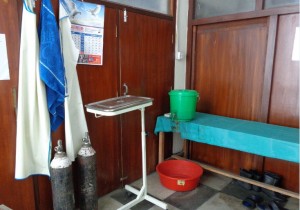

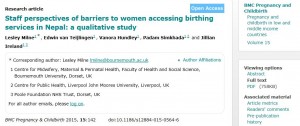
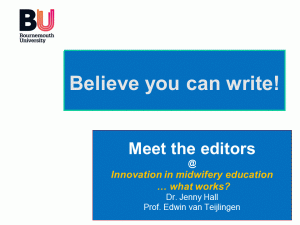
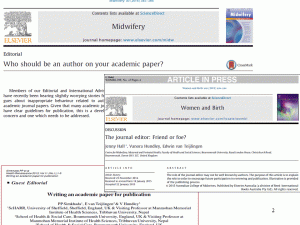

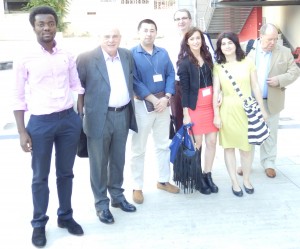
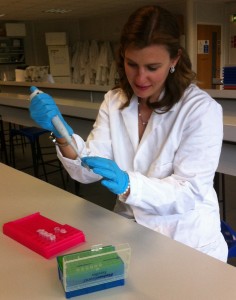


















 Upcoming opportunities for PGRs – collaborate externally
Upcoming opportunities for PGRs – collaborate externally BU involved in new MRF dissemination grant
BU involved in new MRF dissemination grant New COVID-19 publication
New COVID-19 publication MSCA Postdoctoral Fellowships 2024
MSCA Postdoctoral Fellowships 2024 Horizon Europe News – December 2023
Horizon Europe News – December 2023